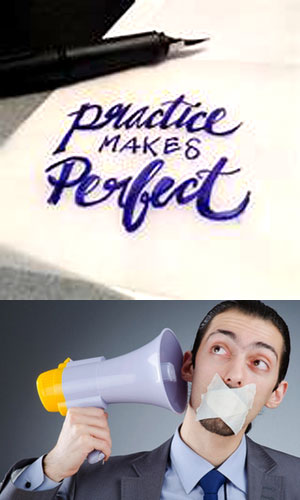Okay, you have an idea about what sorts of resilience skills appeal to you and whether you tend to be more internally focused or externally focused. What should you do with this information?
Step 1: Select the skill you want to improve
You're probably already pretty strong in your most favoured skill group. Improvements there may not help the most for situations that you can't already deal with effectively. But picking your weakest preference also may not be a good idea. Building resilience means developing a new habit with respect to how you deal with a situation. You won't want to practice a skill that doesn't appeal to you enough to make it part of your life. So pick a skill group in the middle range of your preferences.
Also, be aware of whether you tend to be focused on things entirely inside of you or on interactions with the outside world. If there's a big difference in those scores, aim for developing a skill that seems like a good "fit" for your focus.
Step 2: Select a specific behaviour you want to develop
Chart A (see Suggested Resilience Skills) highlights group answers from about 125 people when asked the skill they relied upon most. There are LOTs of other applicable skills (and we'd really appreciate you sharing the skill you use most often so we can share it with others). Use the skill and focus you selected in Step 1 and look at the range of options presented. If you have scores that are similar for internal and external focus, look at both lists for your selected style. Alternatively, you may talk to someone who you think handles difficult situations without becoming overwhelmed. Ask them what they do to make it through and for any suggestions they might have for you.
The principles for selecting a new skill to develop are simple. Pick something new, but something that feels comfortable and possible. Remember you will have to practice the new skill until it becomes second nature to you. Pick something that will work in your everyday life.
Step 3: Learn a new habit
It's not enough to learn a new skill — you also have to recognise when you need to use that skill to deal with what you are facing. Look for the signs of being overwhelmed:
- Anger
- Anxiety
- Grumpiness and over-reactiveness
- Tuning out, or using alcohol or drugs as an escape
- Getting sarcastic or moody
- Wasting time or procrastinating
- Whatever your particular behaviour is when things aren't right for you (again, it may be helpful to ask someone who knows you well)
Make a conscious decision to recognise the situations where you are under stress and try to use your new skill every time that occurs. You will not be successful all the time. Recognition is probably the hardest part, followed by trusting enough that your new skill will help that you let yourself take the time to use it. Keep at it. Learn from the times that go well as well as those times that don't. It takes about six weeks of concentrated practice to establish a new skill — longer when you only practice occasionally. Keep practicing.
One thing that helps is to really appreciate the times when the new skill "worked." Pat yourself on the back when you react better than usual to something that was hard for you. Take the time to relish how good it feels to have a small victory over something that might have gotten to you before. Progress comes with practice — if you just take a moment to let yourself see it.
